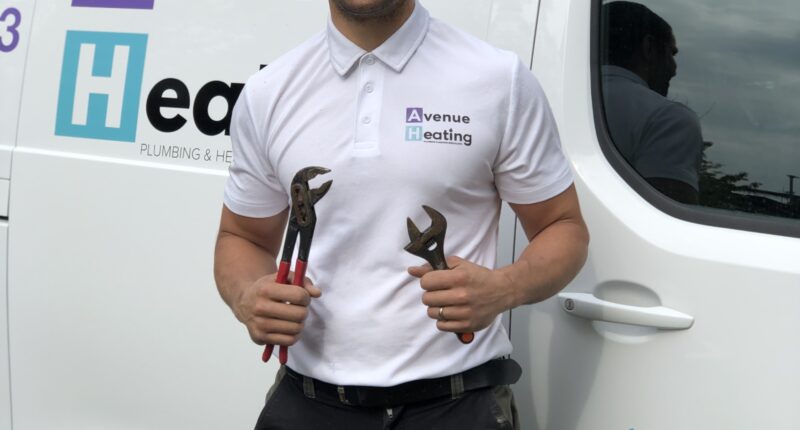IF the recent cold snap had you wondering how to save money on your heating bills, one little-known trick could save you £200 a year.
Winston Davis, plumber and founder of Avenue Heating, has revealed what it might mean if your radiators are cold at the bottom.
He said it could be a sign you have sludge building up and blocking the pipes.
Sludge build-up makes it harder for your radiator to heat up and costs you more money in the long run as your system has to work overtime.
But you can clear out a blocked radiator without having to burst the bank, or spend any money at all – by using a mallet.
But bear in mind you can only use the trick if you have a magnetic filter installed.


Magnetic filters collect debris from within your heating system before it’s given a chance to gather and form a sludge.
If you don’t have a magnetic filter system, you can buy them for as little as £60.
Winston said: “If you have a magnetic filter installed on your system, you can take a light kitchen mallet and tea towel and gently bang along the bottom of the radiator from one end to the other.
“This will help to dislodge any sludge that is building up, send it through the system to your magnetic filter and allow the radiator to heat up more efficiently.”
Most read in Money
Winston said clearing out any blocked radiators could save you around £200 on your heating bills each year, without factoring in the cost of buying a magnetic filter.
But, he warned, if the sludge has been building up for a while, you might have to get a professional in to flush the system out properly.
He added: “If the blockages are severe, like blocked arteries in the human body, if left for too long, they can become physically blocked and lead the system to have a cardiac arrest.
“This can cost thousands to resolve.”
How else can I save money on my heating bills when it’s cold?
Cold weather can cause all sorts of problems for your heating system, especially your pipes.
If they freeze during a sudden cold snap and then burst, it can damage your property and cost a bomb to repair.
But there are some tricks you can use to stop this from happening.
Installing pipe insulation is one step you can take – you can get one meter from Toolstation from just 99p.
But obviously, bear in mind you might have to buy a fair few rolls if you want to cover all your pipes.
The next thing you can do is leave the heating on overnight. This will obviously cost you a little bit more, but you don’t have to have it on full blast.
A lot of radiators have a snowflake setting which, if triggered, will allow minimal water flow between pipes and radiators to prevent freezing.


When it comes to saving money on your heating bills more generally, you could heed one dad’s advice – moving your thermostat.
It only takes 30 seconds and could slash your bills by £250 a year.










